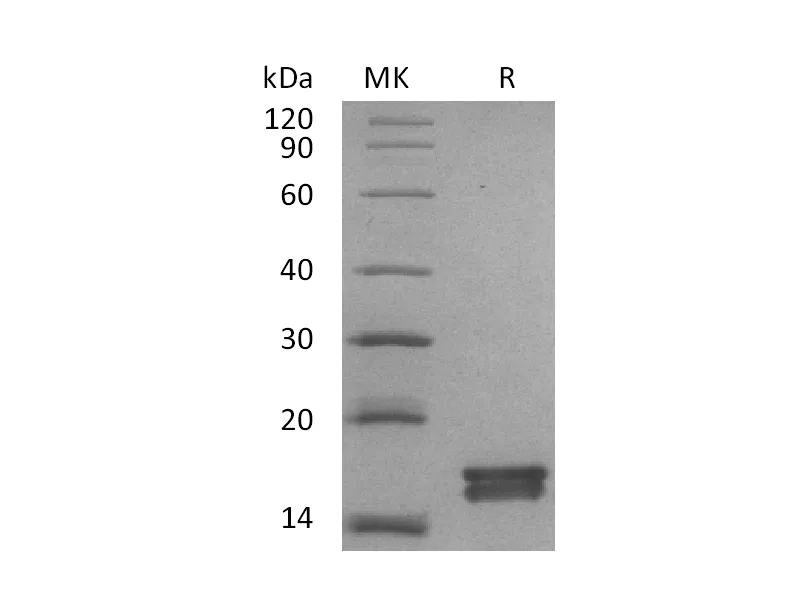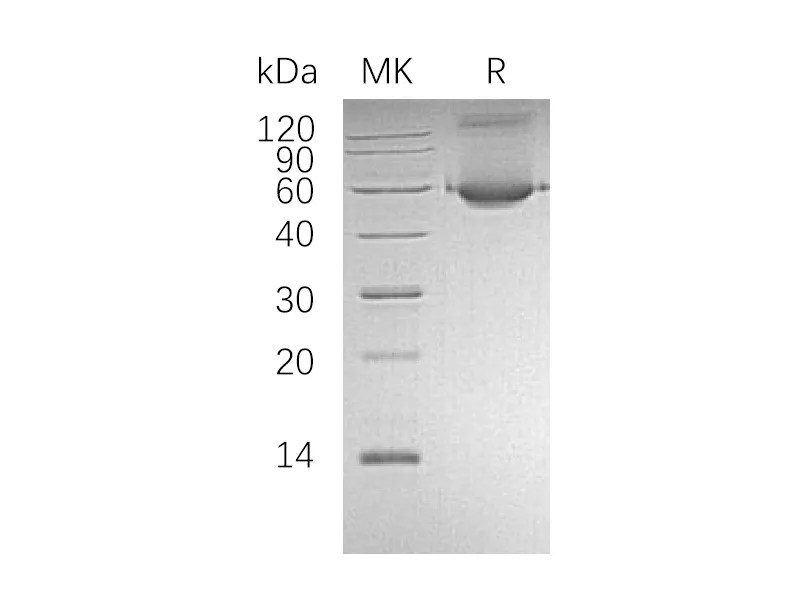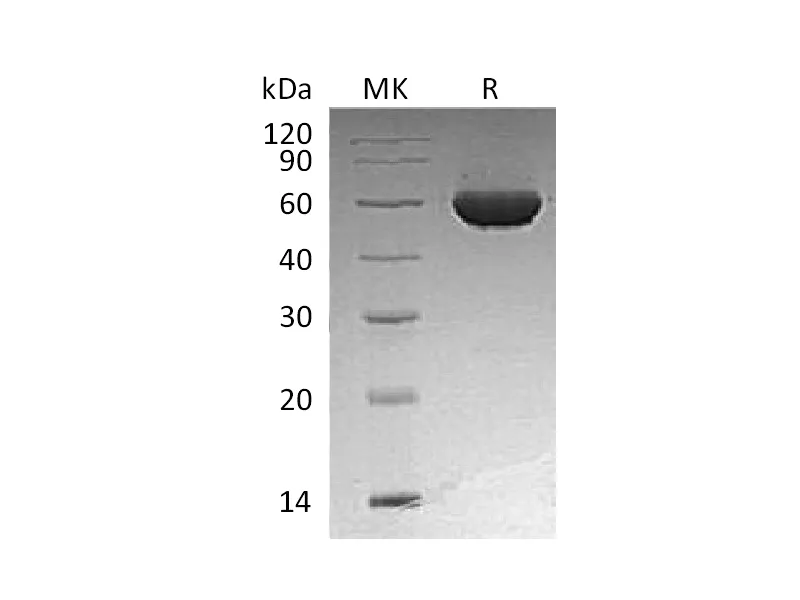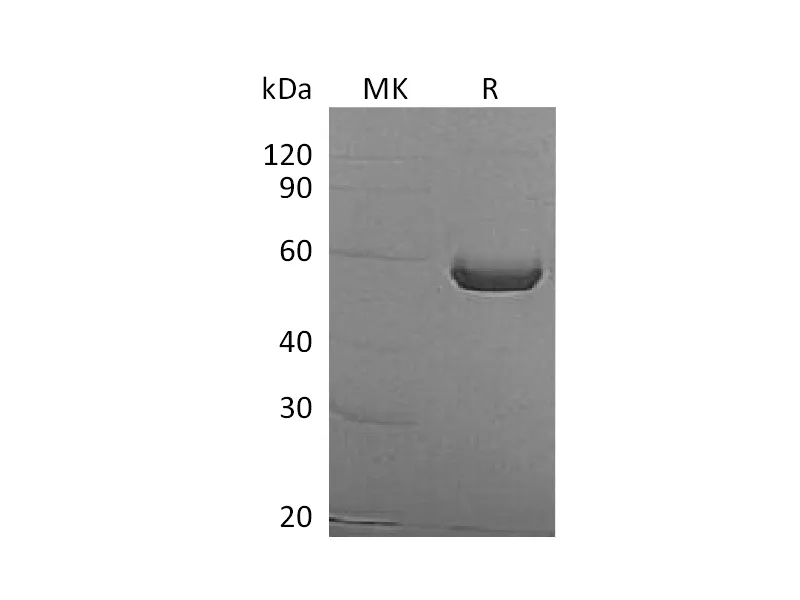Alternative Names
Resistin; Adipose tissue-specific secretory factor; Cysteine-rich secreted protein FIZZ3; C/EBP-epsilon-regulated myeloid-specific secreted cysteine-rich protein; Cysteine-rich secreted protein A12-alpha-like 2; FIZZ3; HXCP1; RSTN; RETN
Background
Resistin known as adipose tissue-specific secretory factor (ADSF) or C/EBP-epsilon-regulated myeloid-specific secreted cysteine-rich protein (XCP1) that seems to suppress insulin ability to stimulate glucose uptake into adipose cells. The length of the resistin pre-peptide in human is 108 amino acid residues and in the mouse and rat it is 114 aa; the molecular weight is ~12.5 kDa. Resistin is a cytokine whose physiologic role has been the subject of much controversy regarding its involvement with obesity and type II diabetes mellitus (T2DM). Resistin has been shown to cause //
Note
For Research Use Only , Not for Diagnostic Use.






